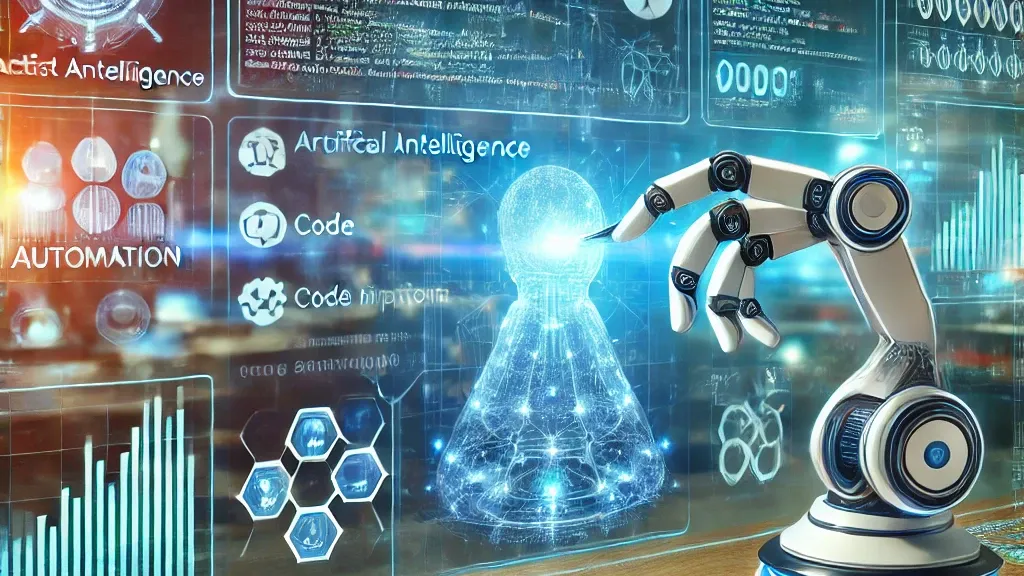In the rapidly evolving world of software development, AI in integration testing is quickly becoming a game changer. Integration testing, a critical phase in the software development lifecycle, involves combining and testing multiple software modules as a group. This ensures that system components work together seamlessly. By leveraging AI, we propel software testing into a new era, marked by heightened efficiency and precision.
The incorporation of AI in integration testing has opened new avenues for enhancing automated testing processes, minimizing human errors, and speeding up the validation of complex systems. AI algorithms can simulate a vast range of user scenarios, identify code defects, and even predict where errors are most likely to occur, reducing the need for exhaustive manual testing.

The Rise of AI in Testing
Automation in software testing has been around for decades, but the rise of AI has revolutionized this field. By integrating AI, the testing processes can be automated and optimized to a larger extent. AI-driven tools like those discussed at Qualitech aid in efficient software QA management.
Benefits of AI in Integration Testing
- Efficiency: AI tools can handle repetitive tasks quickly, freeing up human testers to focus on more complex issues.
- Accuracy: With AI’s precision, identifying bugs becomes less prone to human error.
- Scalability: AI solutions can scale with the complexity of systems, making them ideal for large-scale testing environments.
Challenges in Traditional Integration Testing
Before diving deeper, it is essential to understand the challenges in traditional integration testing. Key obstacles include time consumption, the need for extensive human resources, and the difficulty of complexities, often leading to errors during manual testing. However, with advancements in AI, these challenges are gradually being alleviated.
How AI Enhances Integration Testing
AI enhances integration testing by automating routine processes and analyzing data at speeds unattainable by humans. This automated approach leads to faster detection of anomalies and ensures each component of the system cooperates as intended. AI can also simulate various user interactions and processing scenarios, which are otherwise impossible to cover manually within limited timeframes.
Tool Selection for AI Integration Testing
Selecting the right tool is pivotal for successful implementation. Among the popular options are AI testing tools, which offer a range of features, including automated testing scripts, machine learning algorithms for predictive analysis, and extensive data processing capabilities.
Integration with Existing DevOps Frameworks
One of the crucial steps in implementing AI in integration testing is ensuring the seamless integration with existing DevOps frameworks. This helps maintain consistency and agility in software development processes.
Role of Natural Language Processing
NLP, an AI subset, plays a significant role in testing by interpreting human language in code review processes. This enhances the identification of errors in scripts and ensures better communication across modules. Explore more about the role of NLP in testing here.
Case Studies: Successful AI Integration in Testing
Case studies from large tech companies demonstrate AI’s significant impact on software testing. Many firms have reported improved bug detection rates, reduced testing times, and increased release efficiency.
Future Prospects
The future of AI in integration testing looks promising, with advancements in algorithms and networking expanding its scope. This progress will likely bring fully autonomous testing environments that provide real-time insights and adjustments.
Common Obstacles Faced in Adoption
Despite its advantages, adopting AI in integration testing isn’t without difficulties. Challenges can include integration issues with legacy systems, resistance to change from teams accustomed to traditional methods, and initial setup costs.
Overcoming Challenges
Overcoming these barriers requires an informed approach, including top-down organization buy-in, training, and a progressive implementation strategy that gradually integrates AI capabilities.

Conclusion
AI in integration testing is revolutionizing how we approach software quality assurance. Platforms and tools discussed on Qualitech‘s QA blogs underline the importance of embracing this technology, which is set to redefine the future of software testing.
FAQs
What is AI in integration testing?
AI in integration testing uses artificial intelligence to automate and optimize the process of testing software modules combined as a unit, enhancing efficiency and accuracy.
How does AI improve integration testing?
AI improves integration testing by automating routine processes, speeding up data analysis, identifying bugs more accurately, and allowing for better scalability in testing environments.
What are some challenges faced when implementing AI in testing?
Challenges in implementing AI in testing include integration with existing systems, resistance to technological change, and initial costs associated with setting up AI-driven testing frameworks.
This article contains affiliate links. We may earn a commission at no extra cost to you.

